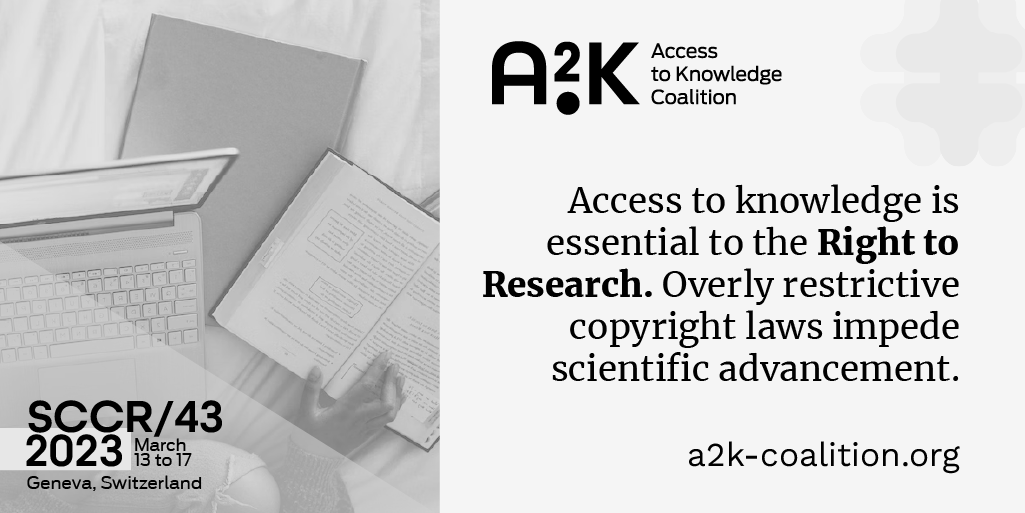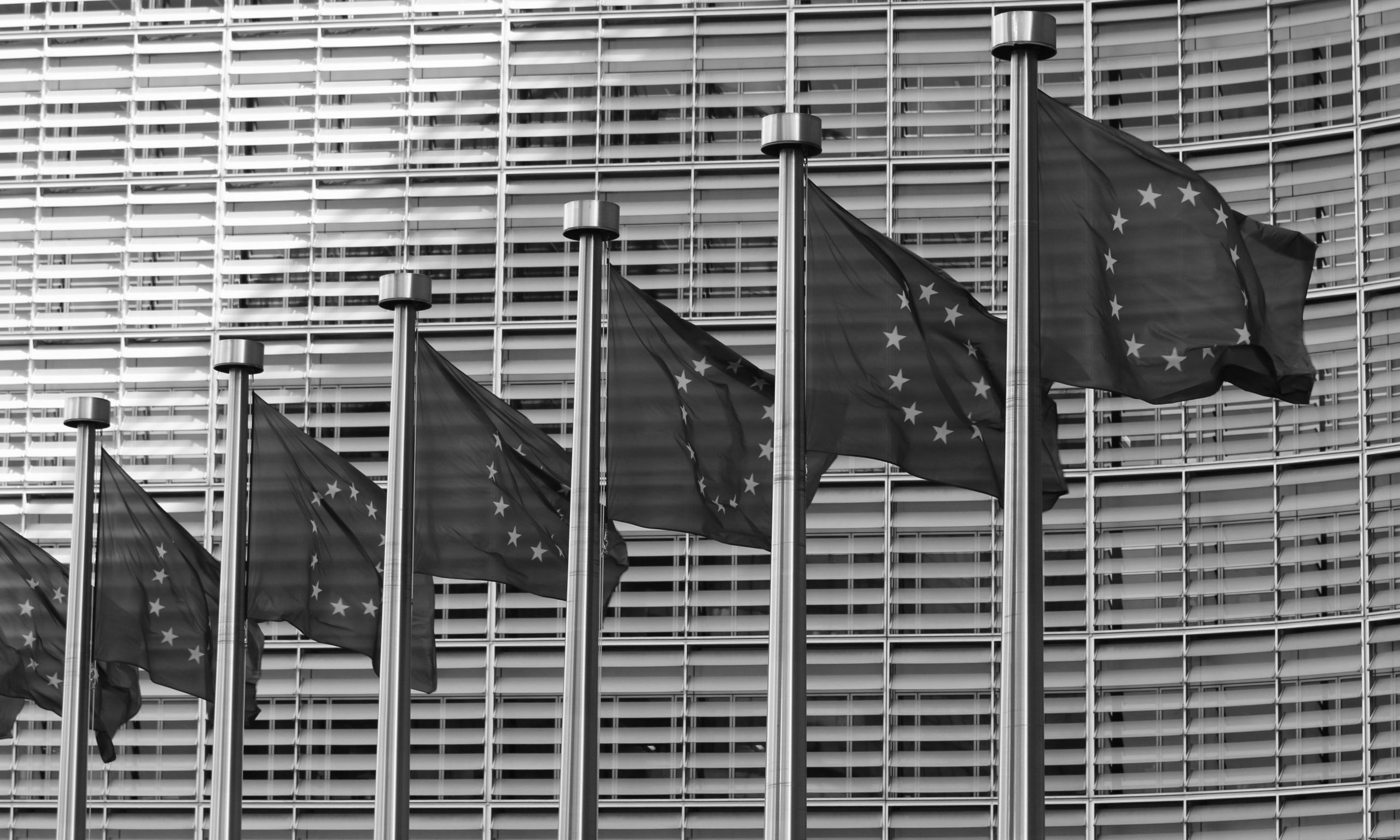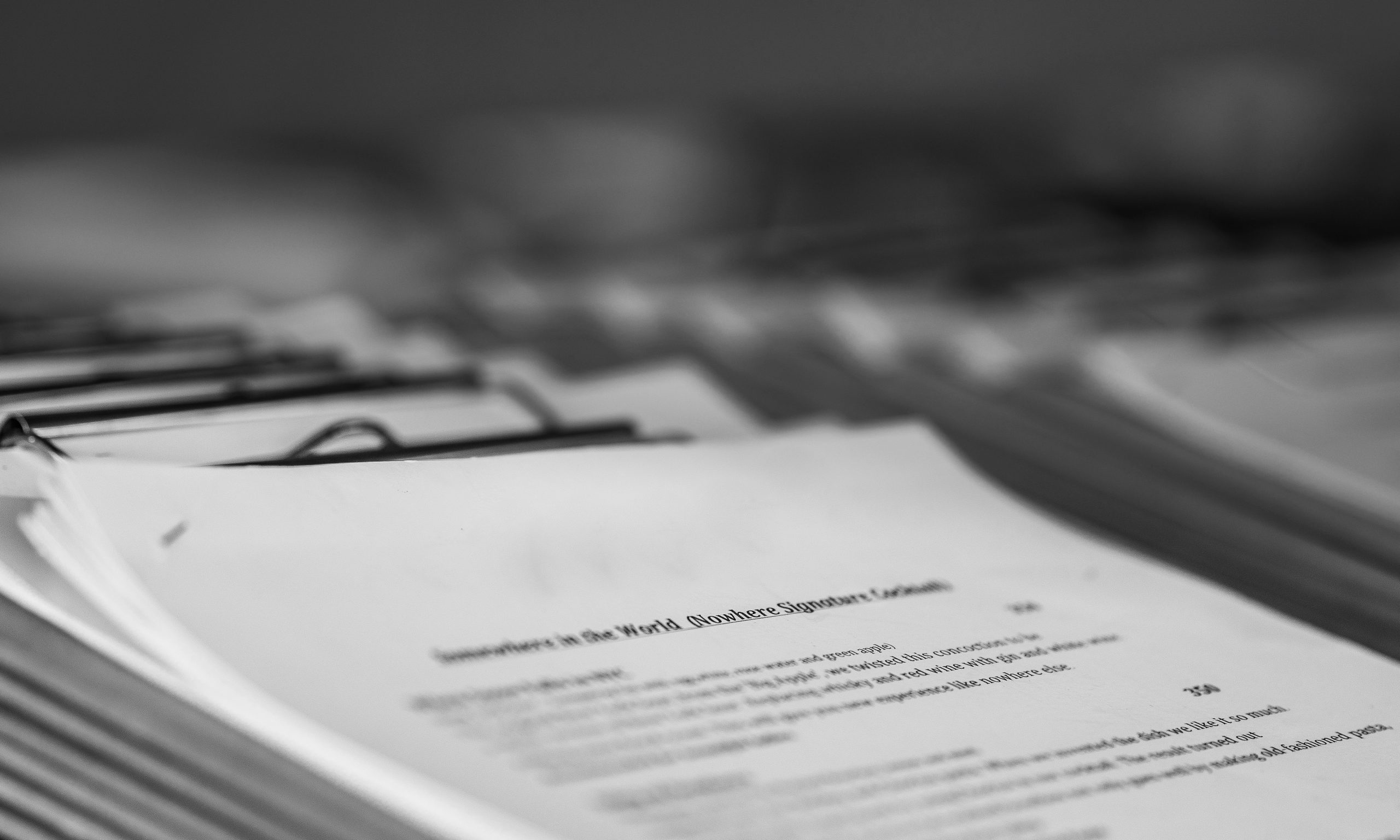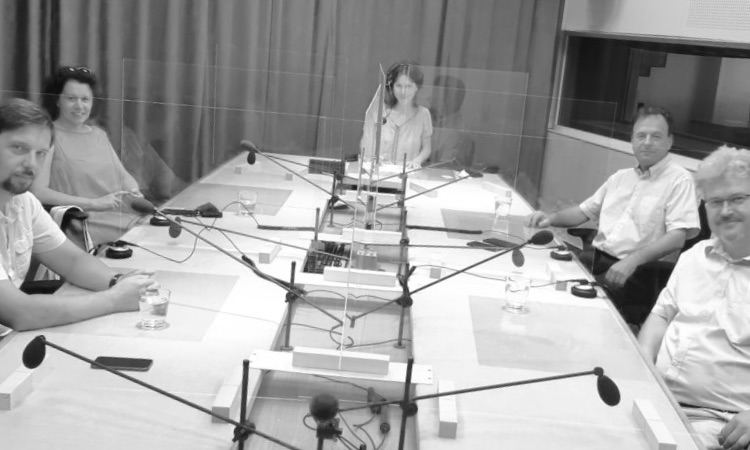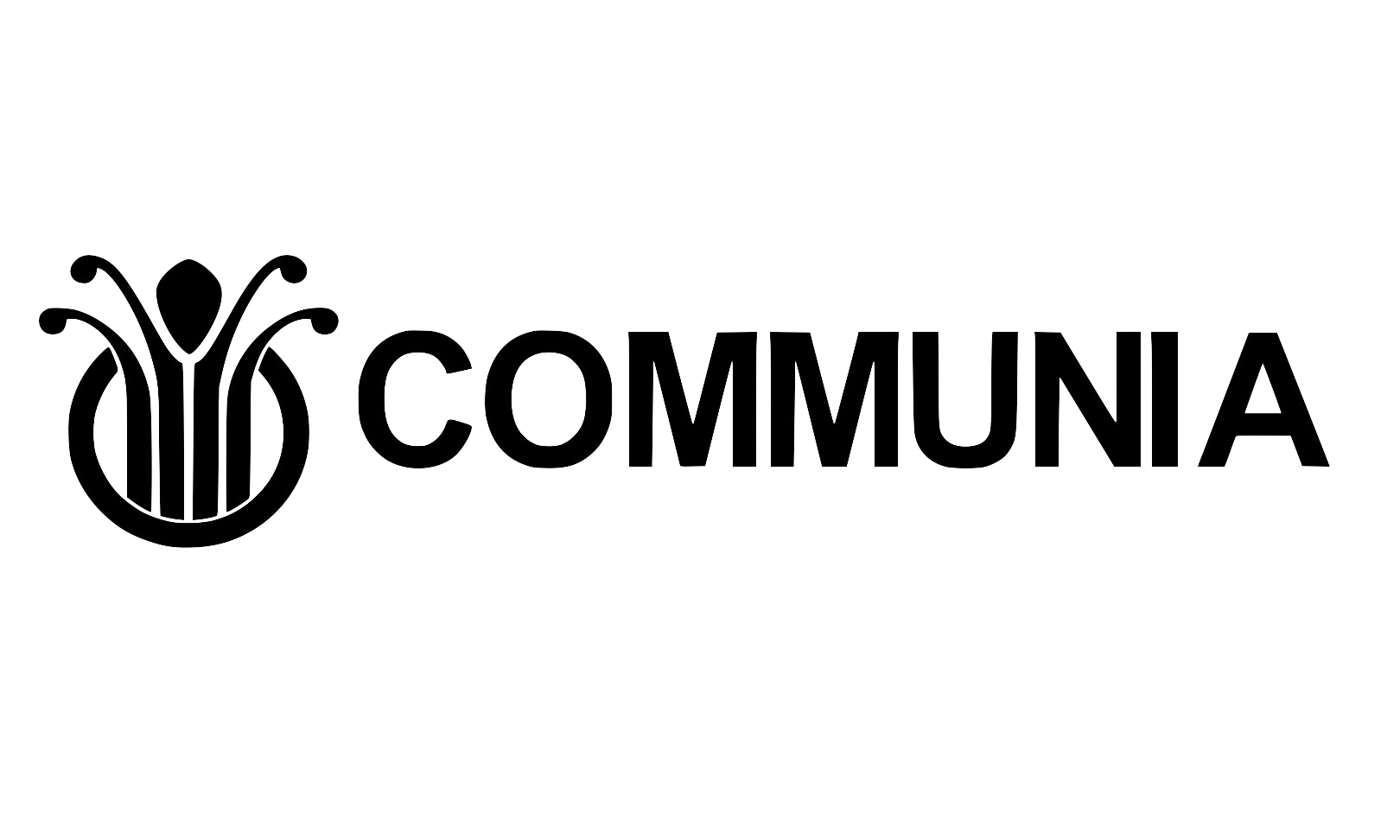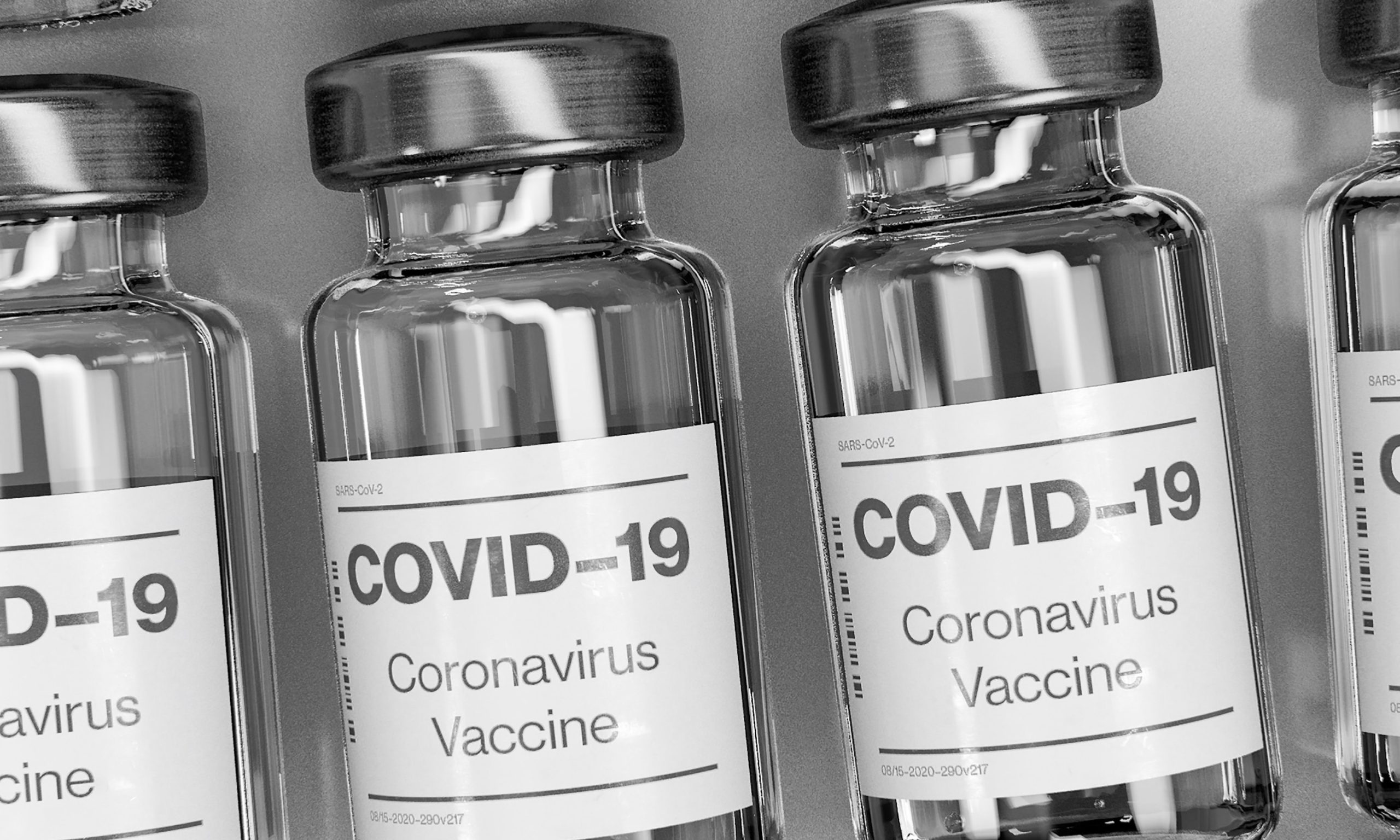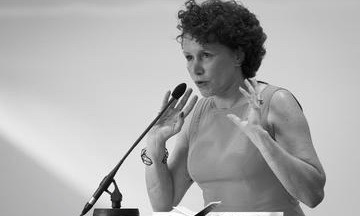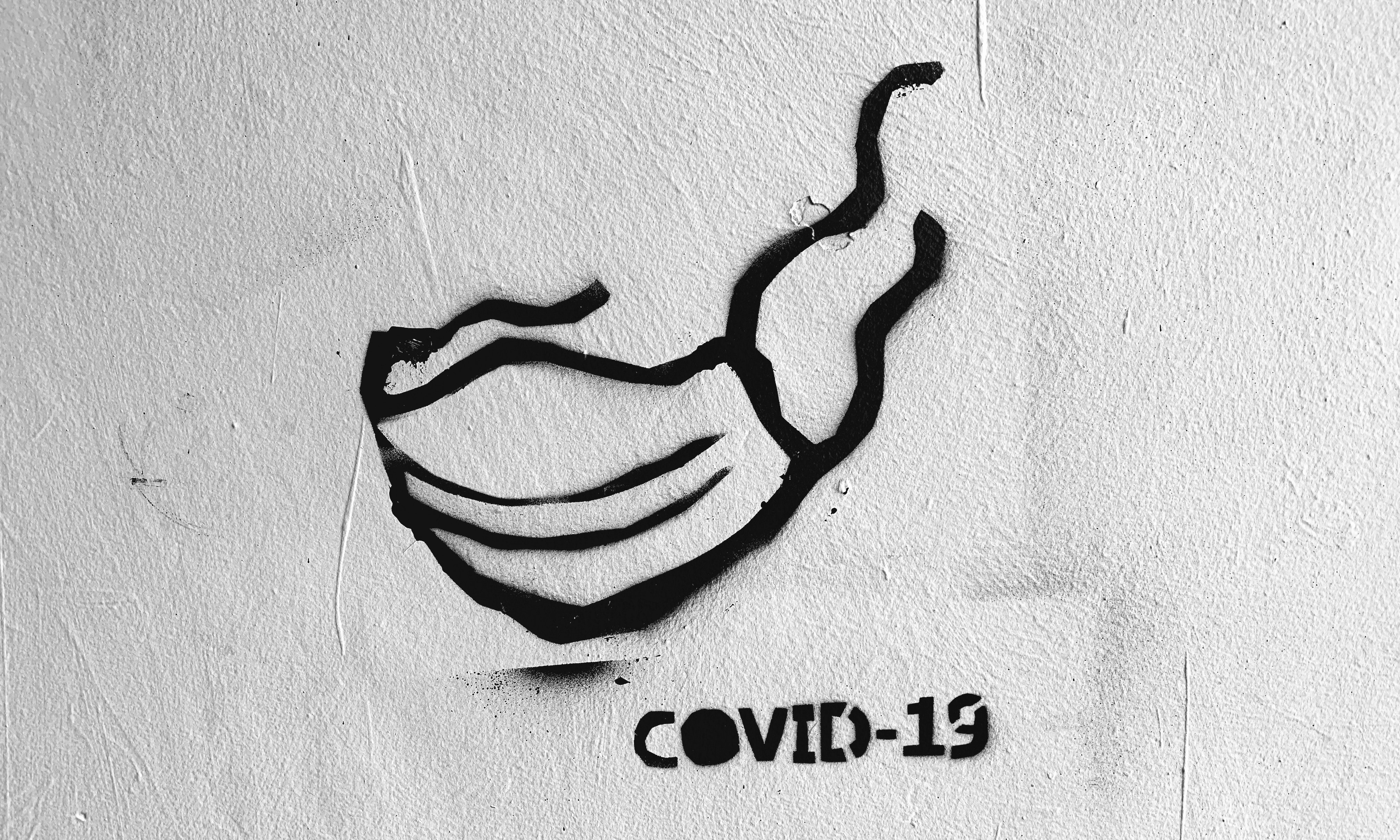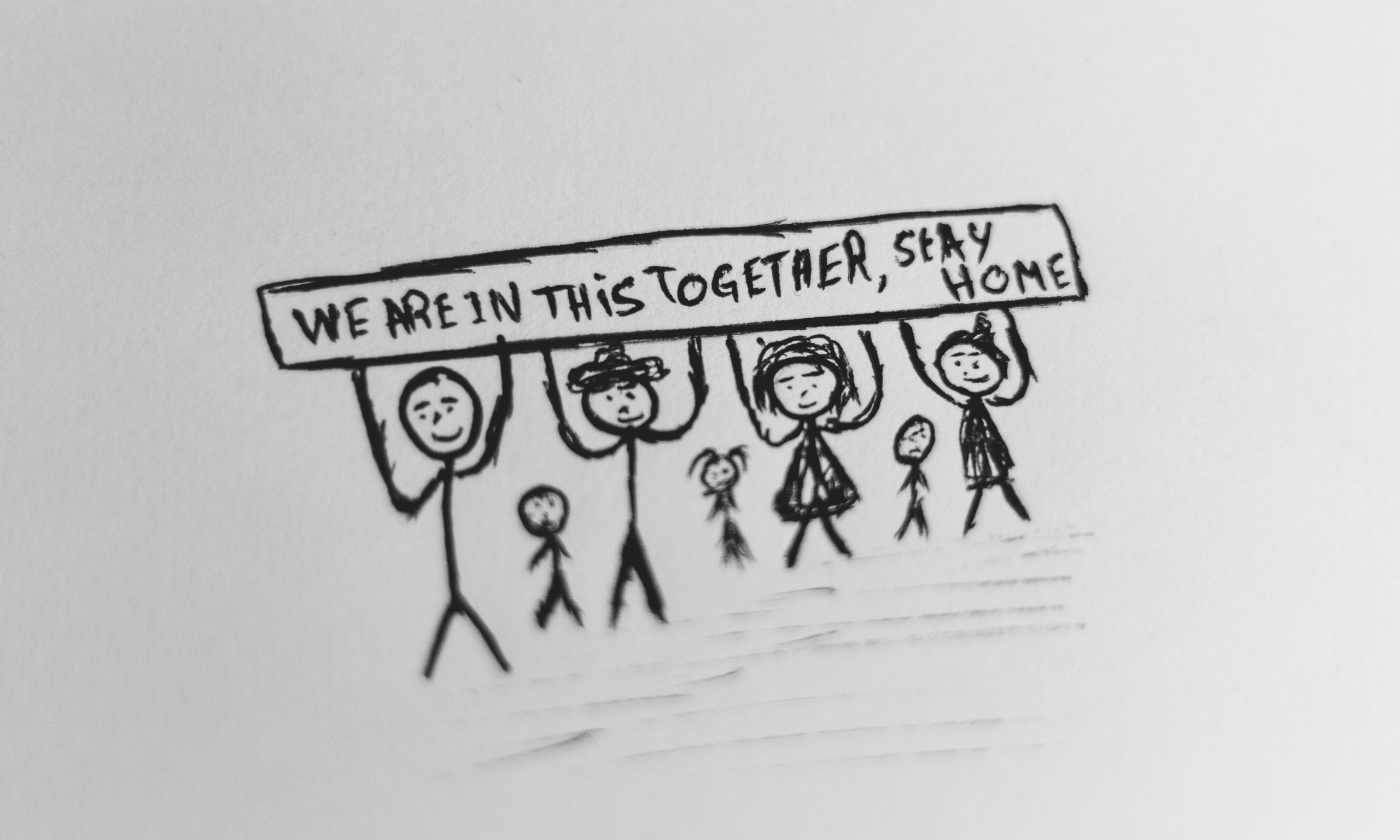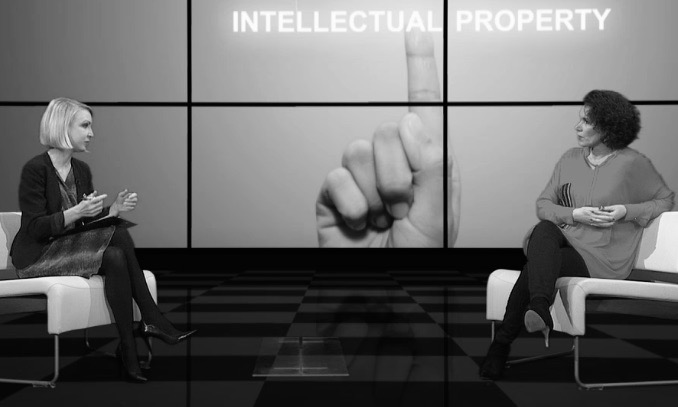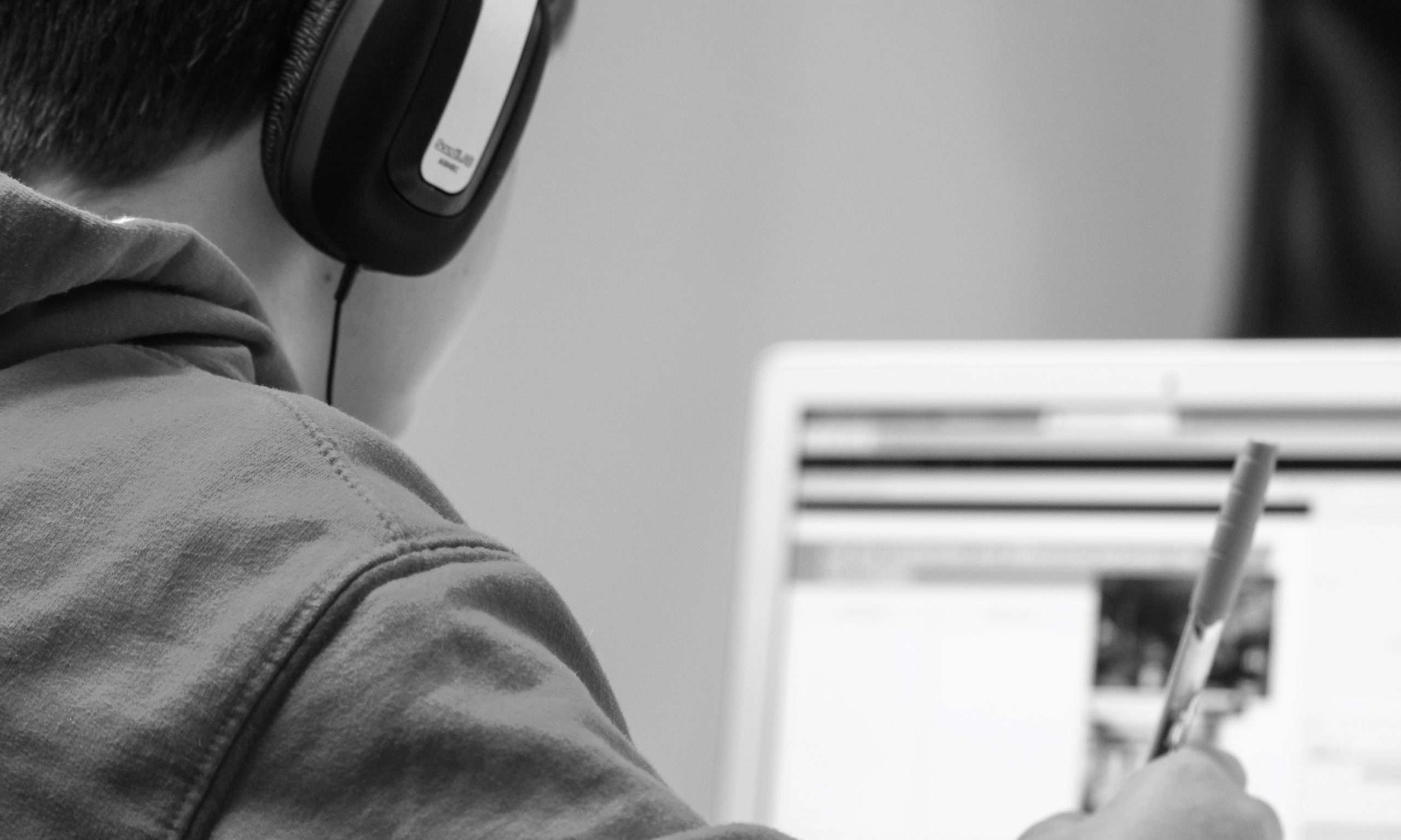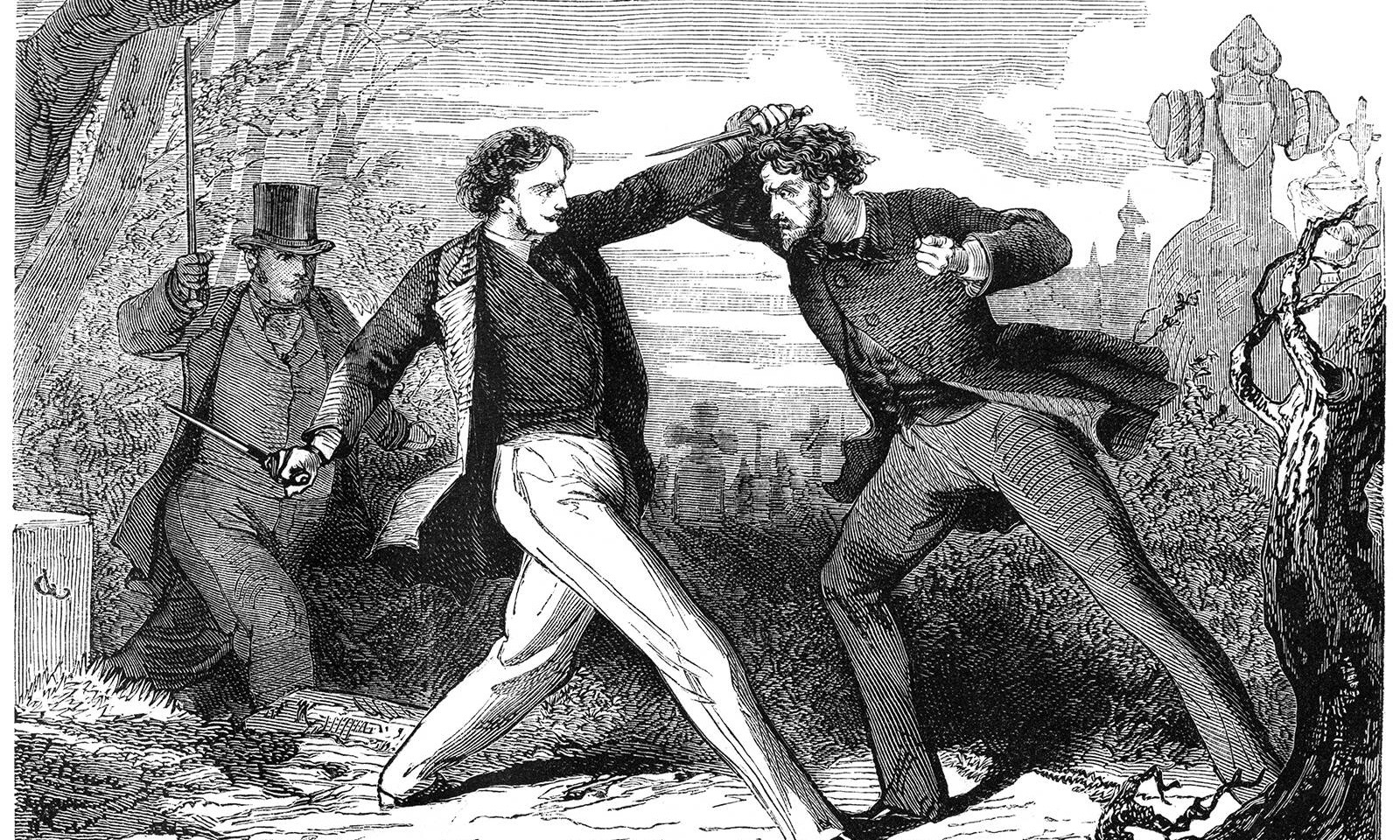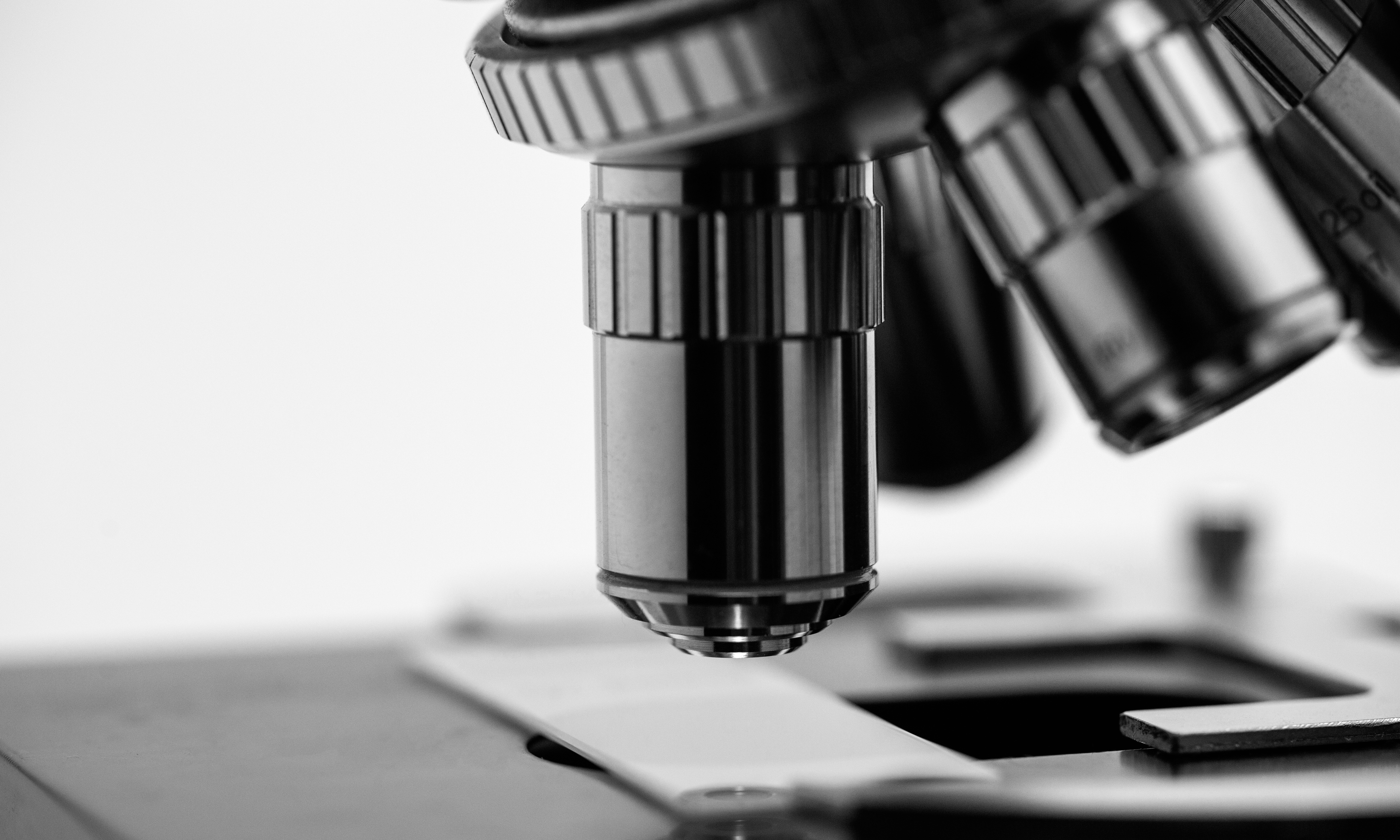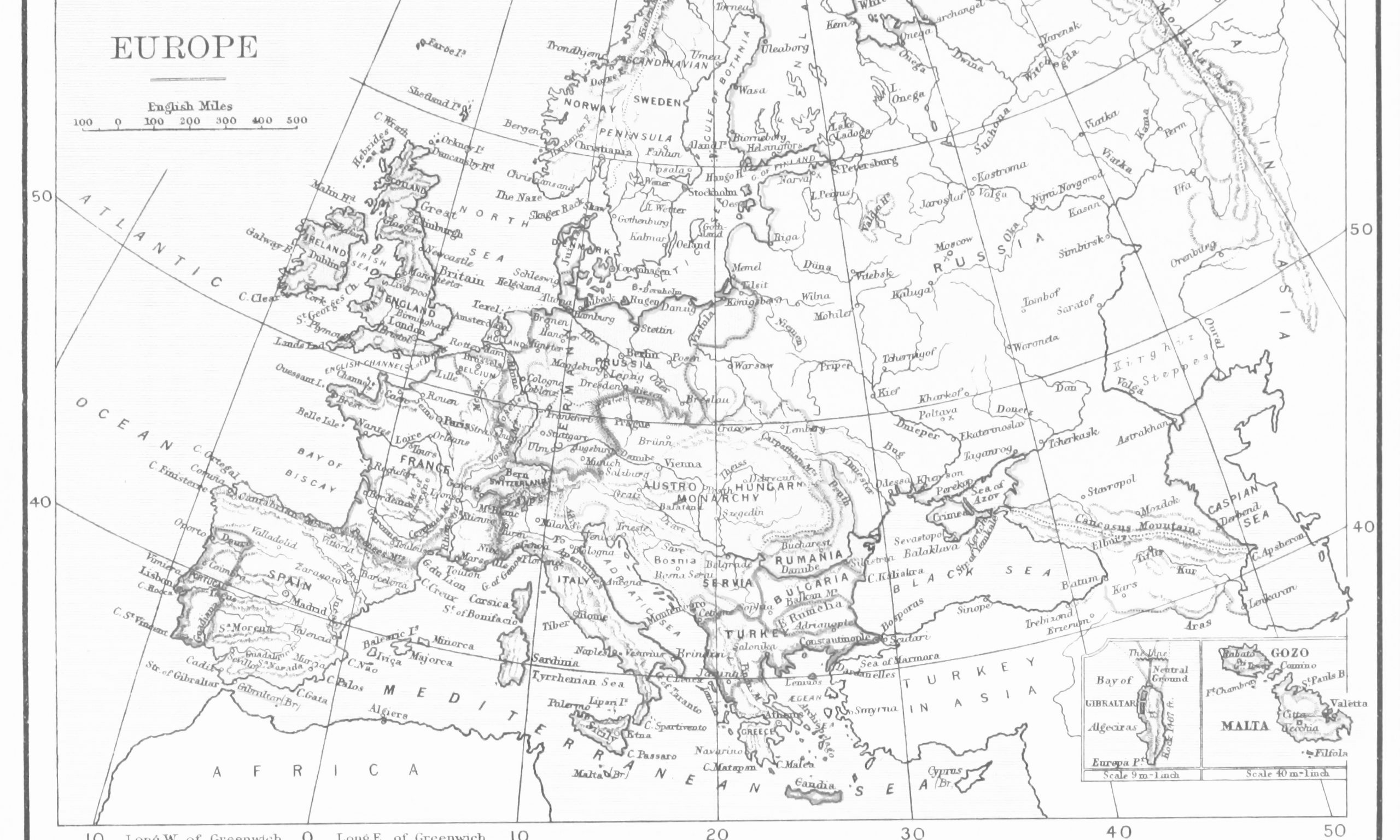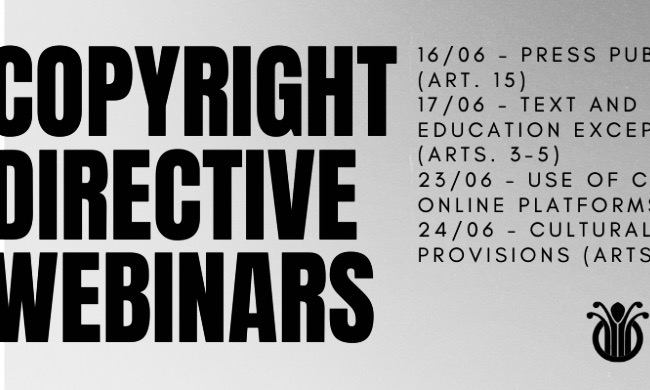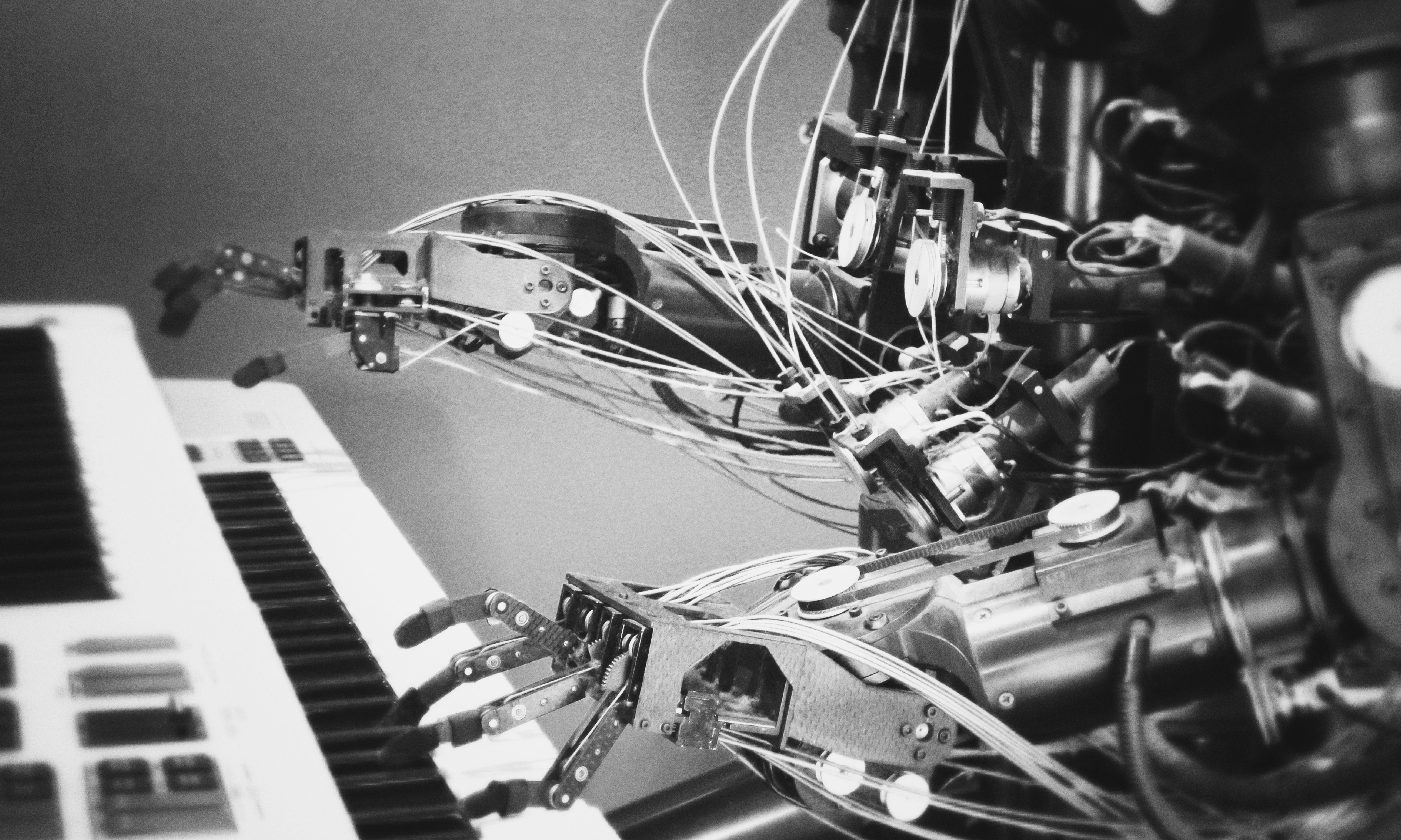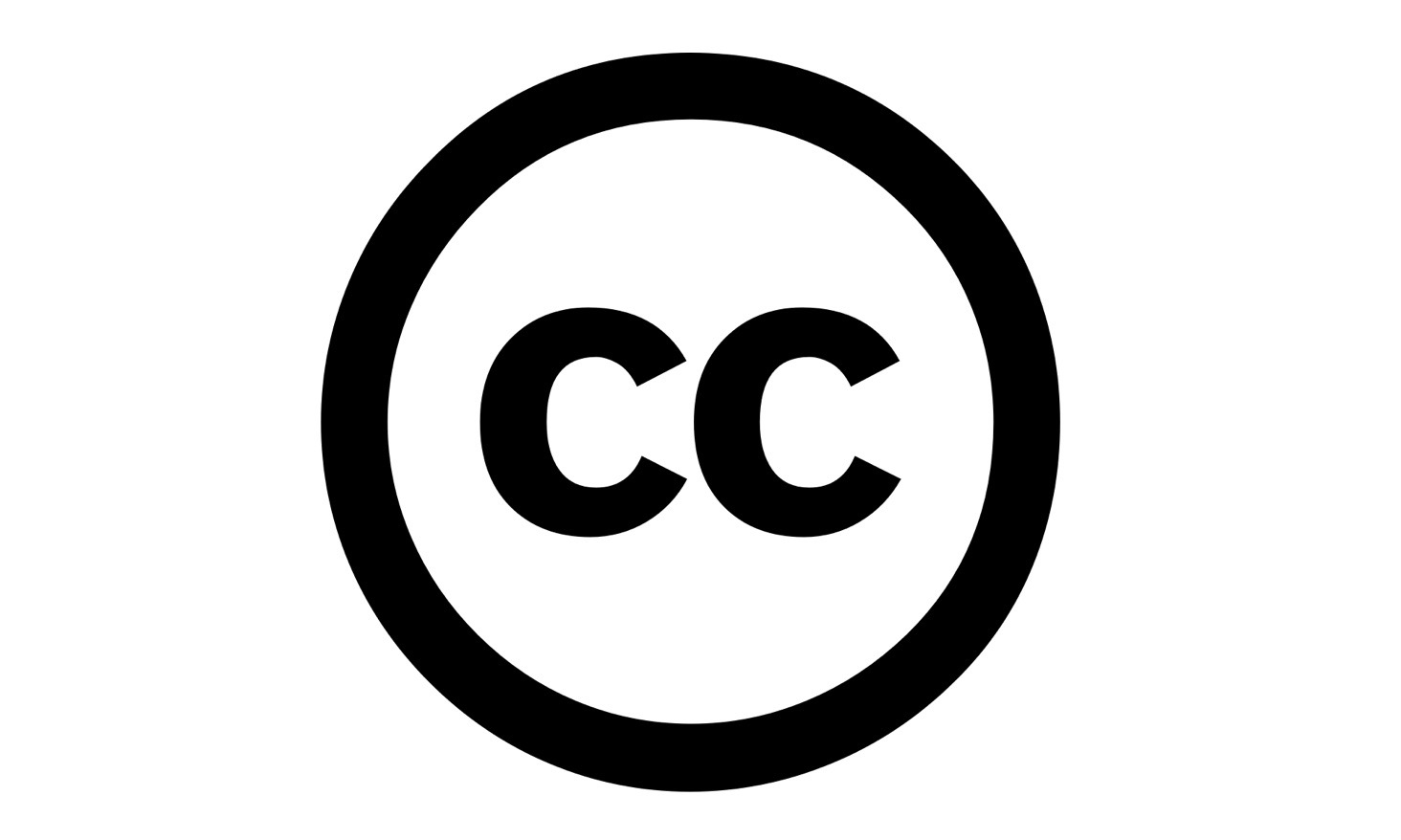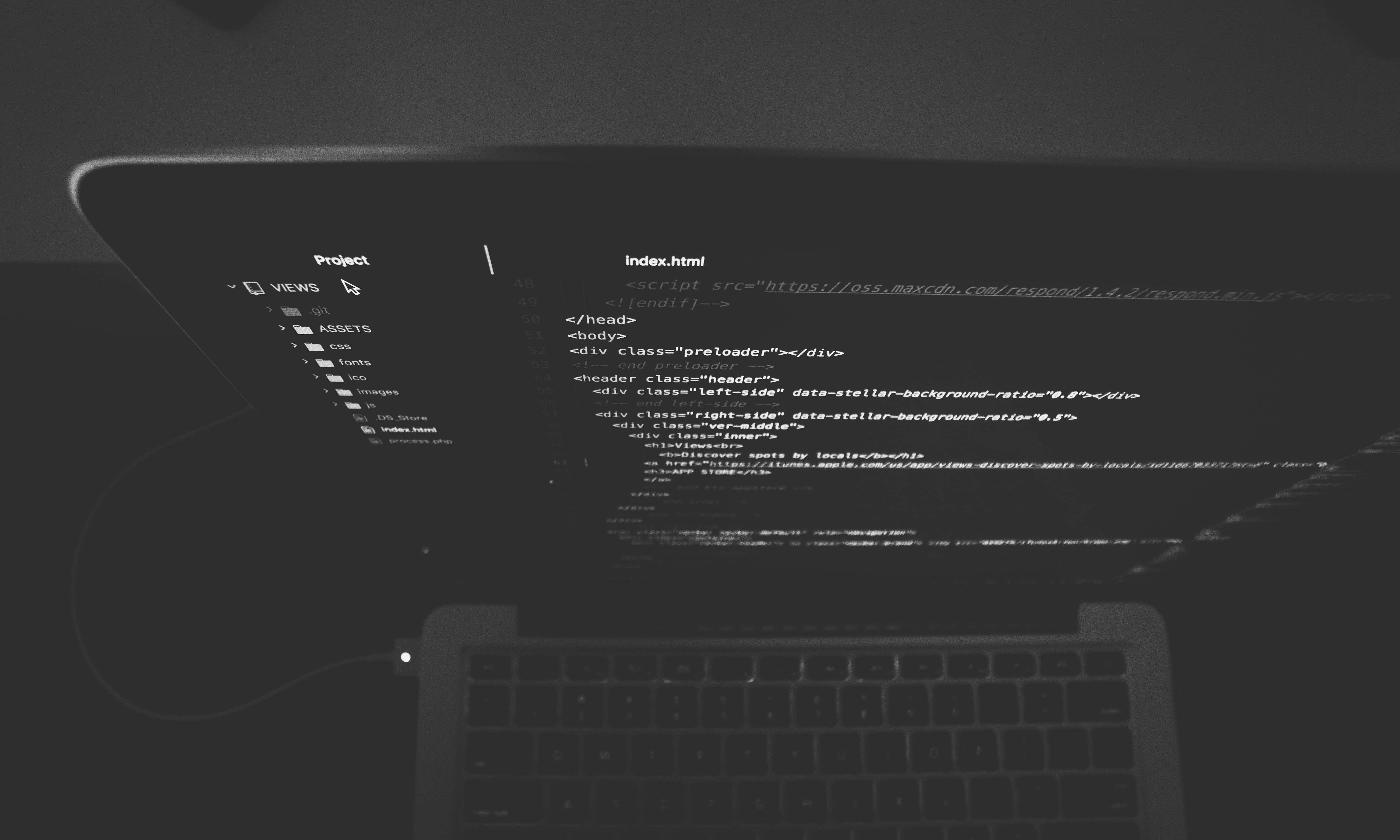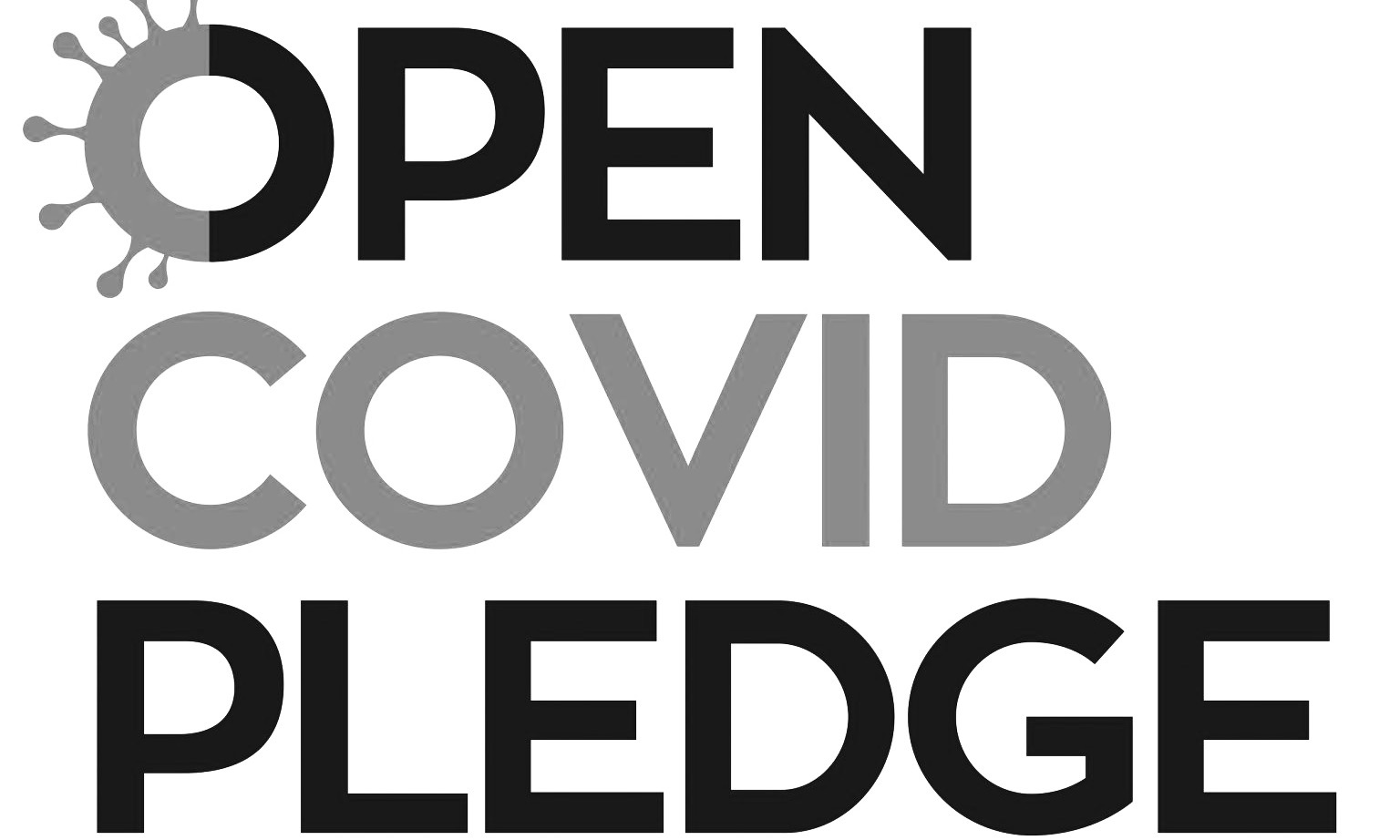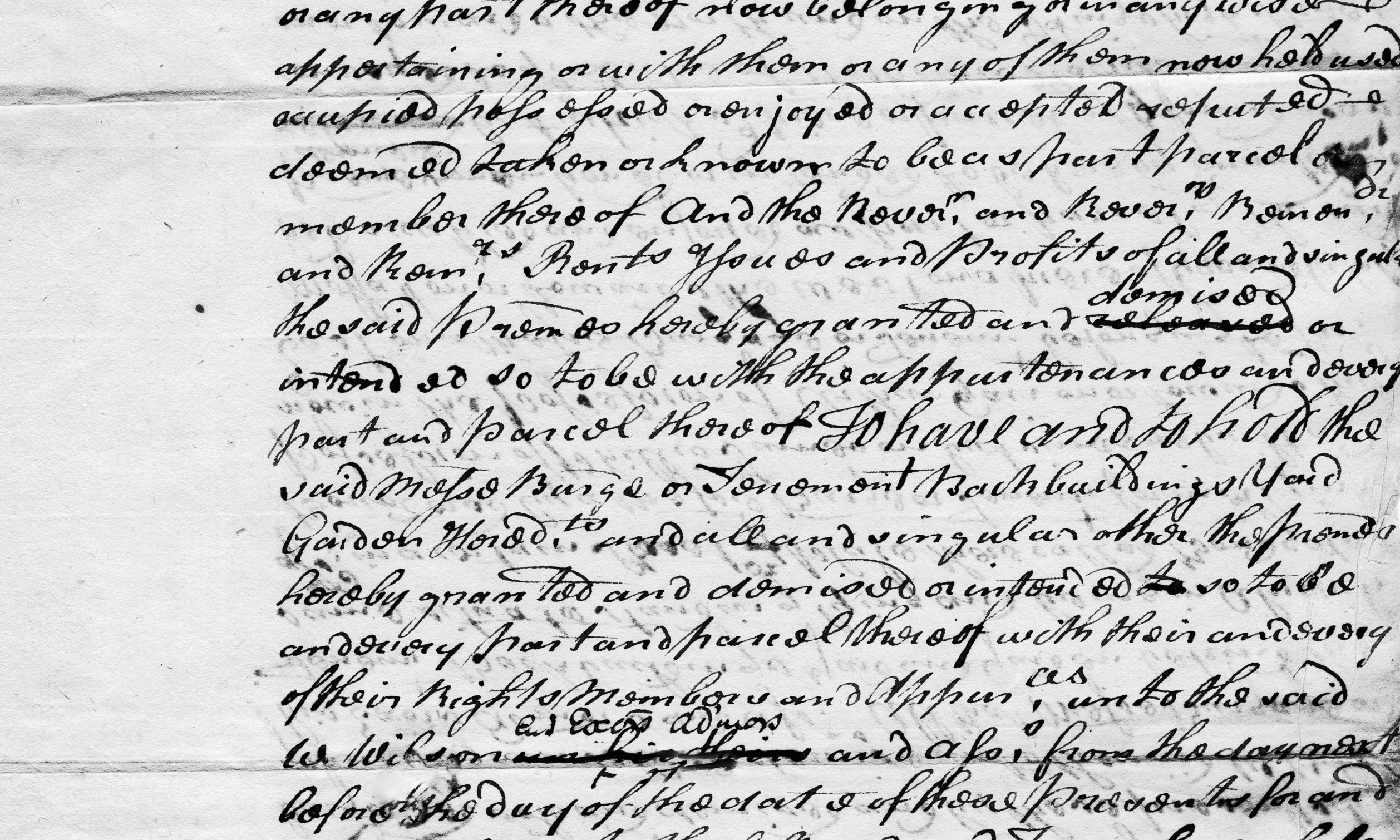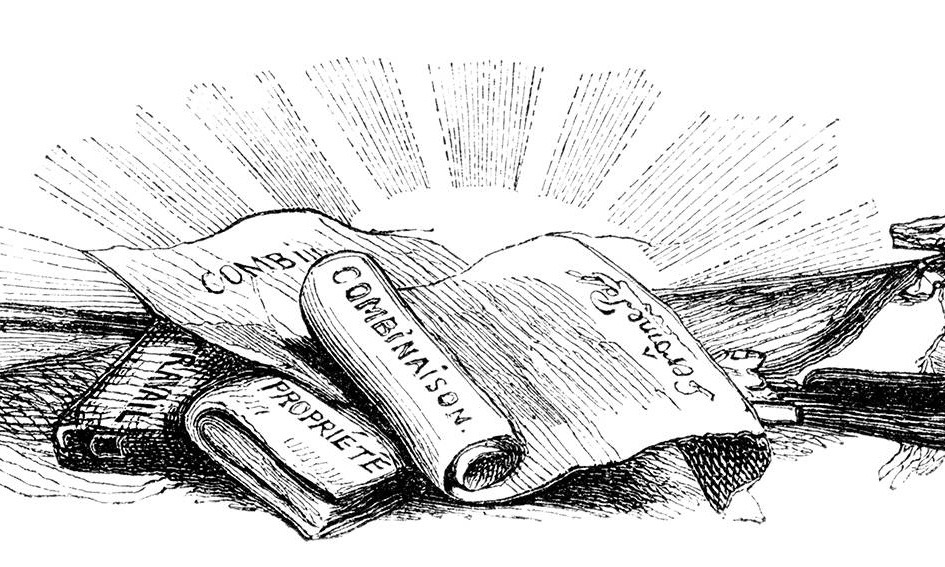The Grand Board of the European Union Intellectual Property Office (EUIPO) finally ruled that the figurative sign ‘COVIDIOT’ cannot be registered as an EU trademark.
Dr. Maja Bogataj Jančič, a renowned expert in copyright law, has joined the Berkman Klein Center for Internet & Society at Harvard University, where she will serve as an affiliate researcher for the next two years.
The U.S. Copyright Office has once again denied the registration of an artwork created by artificial intelligence. Artist Jason M. Allen was unsuccessful in his second attempt to register the artwork “Theatre D’opera Spatial” as a copyrighted work because it contains more than a de minimis amount of content generated by artificial intelligence (AI).
On Friday 23 June 2023, a webinar entitled “Copyright and Legal Basis for Generative Artificial Intelligence Training” was held as the inaugural event of an informal research network in the region in the field of copyright. Researchers from Slovenia, Croatia, Bosnia and Herzegovina, Serbia and North Macedonia participated in the event, which is part of the national Open Knowledge Day initiative and the national and regional coordination activities carried out by ODIPI under the auspices of Knowledge Rights 21.
On Friday 23 June 2023, a webinar entitled “Copyright and Legal Basis for Generative Artificial Intelligence Training” was held as the inaugural event of the Knowledge Rights 21 research network for the Western Balkans region. The research network will study and discuss key issues in the field of Intellectual Property in the region.
The webinar brought together prominent experts from Slovenia, Croatia, Bosnia and Herzegovina, Serbia and North Macedonia. The event is part of the national Open Knowledge Day initiative and the national and regional coordination activities carried out by ODIPI under the auspices of Knowledge Rights 21.
GPAI is co-organising workshops with the Max Planck Institute for Innovation and Competition and Duke University.
On 17 April 2023, the Ministry of Economy, Tourism and Sport and the Intellectual Property Office held an online event entitled “Exceptions and limitations in education, research and science and open science and copyright” as part of a discussion on the further development of copyright legislation.
On Wednesday, 5 April 2023, the first meeting of the Council of the Slovenian Open Science Community took place.
The Internet Archive is a non-profit organization that maintains the Open Library, a digital library index, and is dedicated to preserving knowledge. As many of the works in the Internet Archive are under copyright, the Archive uses a system of controlled digital lending based on digital rights management to prevent unauthorized downloading or copying of copyrighted books. In March 2020, due to the circumstances surrounding the COVID-19 pandemic, the Internet Archive established the National Emergency Library, eliminating the waiting lists used in the Open Library and expanding access to books for all readers. In June 2020, the Emergency National Library faced a lawsuit from four book publishers and was ultimately closed.
The 43rd session of the WIPO Standing Committee on Copyright and Related Rights (hereinafter SCCR) made substantial progress on the issues advocated by the A2K Coalition (Access to Knowledge Coalition), which IPI is a member of. This year’s session was the most productive on the issues of exceptions and limitations. James Love (Knowledge Ecology International), a long-time observer at WIPO, described the outcome and the impact of the public interest community as the strongest since the conclusion of the Marrakech Treaty, which brought global copyright exceptions for the benefit of the blind and visually impaired.
Today, March 17, 2023, a symposium on law in the information society is taking place in the golden lecture hall of the Faculty of Law in Ljubljana. Dr. Maja Bogataj Jančič will present copyright aspects of artificial intelligence at the symposium.
The third day of the 43rd session of the WIPO Standing Committee on Copyright and Related Rights is intended for discussion on the topic of exceptions and limitations to copyright, especially in connection with the right to research.
The 43rd session of the WIPO Standing Committee on Copyright and Related Rights (SCCR/43) is being held in Geneva from March 13 to 17, 2023. The Intellectual Property Institute has a permanent observer status at WIPO since 2022 and is also a member of the Access to Knowledge Coalition (A2K coalition).
Great works of art, which are already within the public domain, which means that their copyright protection has already expired, are being recreated by Thaïs Vanderheyden. In this way, art is brought closer to children who are fascinated by her works of art.
A workshop on proposing a research-appropriate EU legislative and regulatory framework on copyright and data was organised in Brussels on February 23 and 24, 2023 in the scope of Action 2 of the European Research Area (ERA). Dr Maja Bogataj Jančič attended the workshop as the Slovenian representative for Action 2 in the ERA group. She presented the Slovenian data and text mining exemption, which is among the most advanced in Europe, and pointed out the many copyright obstacles in Slovenian legislation.
On 26 January 2023, Minister Dr Igor Papič appointed Dr Maja Bogataj Jančič, LL.M., LL.M. (Intellectual Property Institute) and Ana Fidler (Central Technical Library of the University of Ljubljana) to the European Research Area (ERA) team for Action 2, which includes tasks in the field of “Propose an EU copyright and data legislative framework for research”.
The European Commission decided to refer 11 Member States to the Court of Justice of the European Union for failing to notify the Commission of transposition measures under two Directives with respect to copyright.
Until March 7, 2023, research proposals focused on proving the impact of copyright exceptions for research in various legislations and on proving the mutual influence of the operation of technological protection measures (technological protection measures TPM) and copyright exceptions, both in the European area, are being collected.
Until March 31, 2023, initiatives are also being collected for national projects that would have a demonstrable impact on the regulatory framework.
How does the right to education and science limit copyright law?
In June 2022, Communia launched a competition for the best implementation of the Directive on copyright and related rights in the Digital Single Market (DSM Directive). The “Eurovision DSM contest” aims to track the implementation of the DSM Directive in the 27 EU member states.
Communia is looking for a Policy Advisor who is passionate about the Public Domain and dedicated to enabling access to culture and knowledge.
The Slovenian Copyright and Related Rights Act was amended in September. The adoption process was intensely problematic and resulted in numerous solutions at the expense of researchers and educators, while also being contrary to the national open science strategy. The issue was considered in detail by Maja Bogataj Jančič and Sandra Koren in an open access article in Sobotna priloga, Delo.
The positive changes in the amendment are due to the persistence of researchers that were supported by the Minister of digital transformation, dr. Emilija Stojmenova Duh. This resulted in the adoption of a progressive TDM exception.
Global Partnership on AI (GPAI) is a multidisciplinary initiative, joining together experts from various fields to foster international cooperation in responsibly developing all things AI in theory and practice.
Data Governance Working Group (DGWG) is one of the four groups of experts, working for sustainable development of AI in the scope of GPAI.
In late August, the Swiss Federal Court upheld a lawsuit by Lindt & Sprungli, ruling that Lidl must stop selling its golden chocolate bunnies and destroy all remaining stock, as they infringe on Lindt’s 3D trademark.
The Access to Knowledge Coalition, also known as the A2K Coalition, is a group of non-governmental organizations united in their commitment to a fair and balanced copyright system.
Dr. Maja Bogataj Jančič, LL.M., LL.M., is giving a lecture on “Legal issues in open research” at the Open Science Summer School, organised by the University of Maribor.
The White House Office of Science and Technology Policy has updated the 2013 memorandum guaranteeing free public access to the results of publicly funded research and research data – including in a machine-readable format – without additional barriers and immediately upon publication. The regulation was welcomed by the Washington College of Law and PIJIP‘s Project on the right to research and international copyright. Representatives emphasized that public access to scientific work financed from public sources should be universal.
The DSM Directive entered into force in June 2019 and the deadline for implementation expired on 7 June 2021. On 23 June 2021, the Commission launched multiple infringement procedures and sent letters of formal notice to Slovenia and 22 other Member States that had failed to notify it of the full transposition of the Directive. Slovenia remains among the 14 Member States against which the Commission is continuing the infringement procedure. On 19 May 2022, the Commission sent reasoned opinions to Belgium, Bulgaria, Cyprus, Denmark, Greece, France, Latvia, Poland, Portugal, Slovenia, Slovakia, Finland and Sweden.
On April 26th, the Court of Justice of the EU will hand down its decision on the annulment of Article 17 of the DSM Directive in Case C-401/19, Poland v Council and the Parliament. Communia is hosting a virtual salon to discuss the implications of this highly anticipated judgement and what it means for the national implementations of Article 17. The registration is free and open!
On 11 and 12 March 2022 the World Conference “Second Digital Day’22” (SDD’22) was held as a webinar. The target of this global event was to structure an authentic digital Humanism that can be spread all around the planet. Also dr. Maja Bogataj Jančič, LL.M., LL.M. gave a lecture at the event, and on 12 March 2022 presented the topic “Copyright Exceptions and Restrictions: The Key to Sustainable Development”.
The first outputs from the Global Partnership on AI (GPAI) Data Governance Working Group (DGWG) project Enabling data sharing for social benefit through data trusts are published. The end goal of this project is to help GPAI realise the potential of data trusts as a tool to promote the safe, fair, legal and equitable sharing of data, in service of the UN Sustainable Development Goals. You can read more about the project here.
A recording of the public session of the Data Governance Working Group (DG WG) of 12 November 2021 has been published. DG WG’s public session took place within the 2nd GPAI Summit, held from 11 to 12 November 2021 in Paris, France. The latter included reporting on study topics from all ten working groups, including reporting from the DG WG. The DG WG public session is now also available on the GPAI Youtube channel. If you missed the live broadcast, you are invited to watch!
On January 5, 2022, the Ministry of Economic Development and Technology (MGRT), together with the Intellectual Property Office (URSIL), organized an online consultation. Representatives of URSIL and MGRT first presented to the interested professional public the planned substantive changes to the main solutions of the amended Proposal on Amendments to the Copyright and Related Rights Act (ZASP-I) and the amended Proposal on Amendments to the Collective Management of Copyright and Related Rights Act (ZKUASP-A). Many participants argued that the competent drafter did not provide the interested parties with the amended draft proposals before the discussion, but instead provided all the registered participants only with a meager slide presentation, which was misleading in some places.
On 23rd of November, 2021, the European Commission has published two reports in the field of copyright, as required by Directives 2014/26/EU (CRM Directive) and 2019/790 (DSM Directive). They are supported by two studies: Study on emerging issues on collective licensing management in the digital environment, and Study on selected issues relating to the application of the CRM Directive.
A new book “Law and Artificial Intelligence: Issues of Ethics, Human Rights and Social Harm” was published (Institute of Criminology at the Faculty of law in Ljubljana, 2021), the editors of which are prof. dr. Aleš Završnik and dr. Katja Simončič. The author of one of the articles is also dr. Maja Bogataj Jančič, LL.M., LL.M., who wrote an article on the topic of whether artificial intelligence can be an author of a copyright work.
In the process of implementing the DSM Directive, the German Justice Ministry presented multiple draft versions of the implementation law based on several rounds of public consultation. Thereupon, on 19 of May, 2021, the German Bundestag adopted the law (Urheberrechts-Diensteanbieter-Gesetz, “UrhDaG”), implementing the provisions of the DSM directive into German law, about which IPI has already reported. UrhDaG has entered into force on 1 of August, 2021. In regards to the implementation of Article 17, Germany was the first Member State to present a system of ex-ante user rights safeguards. As of 28 May 2021, Germany has also fully implemented the remaining provisions of the DSM Directive, which entered into force on 7 June.
On 23 September 2021, AG Hogan delivered his Opinion in the C-433/20 Austro-Mechana case which concerns the exception and limitation of copyright from Article 5(2)(b) of the Directive 2001/29/EC of the European Parliament and of the Council of 22 May 2001 on the harmonisation of certain aspects of copyright and related rights in the information society (InfoSoc Directive), specifically in regards to the private copying exception. The AG suggests that the private copyright exception applies in the cloud, but a separate levy may not be payable.
Today, on the October 8th, 2021, 55 organizations signed and sent the letter to Delegations, supporting the Wikimedia Foundation’ application for observer status at World Intellectual Property Organization (WIPO). The latter is a response to Chinas blocking of the Wikimedia Foundation’s bid for observer status at the WIPO for the second time after the Foundation’s initial application in 2020. The signatories of the latter, including Intellectual Property Institute (IPI), called on Delegations to do everything in their power to facilitate admission of the Wikimedia Foundation at the next series of meetings of the WIPO Assemblies, without any further delays.
On the 29th of September, 2021, UNESCO held the OER Dynamic Coalition Webinar, which highlighted the importance of harnessing Open Educational Resources (OER) to strengthen access to information in the context of the International Day for Universal Access to Information (IDUAI) 2021 celebrations. The webinar explored perspectives on regulatory frameworks related to copyright for educational materials. In this respect, dr. Maja Bogataj Jančič, LL.M., LL.M. presented a study on Remote education during the pandemic – Teachers’ Perspective conducted in seven countries.
Julia Reda (Gesellschaft für Freiheitsrechte) and Paul Keller (Open Future) have recently published a white paper, that proposes to build a public repository of Public Domain and openly licensed works, and to use Article 17 of the DSM Directive as leverage to create such a repository. The white paper was presented on Tuesday during the “Protecting Open Licenses in the EU Copyright Reform” session at the Creative Commons global summit.
This year, IPI collaborated with Communia and the Centrum Cyfrowe, which conducted an international study on the use of copyrighted works during remote teaching during the Covid-19 pandemic. The research is now published, and its results were also presented on 15 September 2021. You are invited to take a look at the survey!
On September 2, 2021, Austria has published a new draft law, which implements DSM Directive. The draft law is in consultation till October 13, 2021. In regards to Art. 17 of the DSM Directive, Austrian draft law is a mixture of the German approach, on which IPI already reported, and Europan Commission’s Guidelines.
On September 6, 2021, Dr. Maja Bogataj Jančič, LL.M., LL.M. in the radio show Studio at 5 pm spoke on the topic of the implementation of the DSM Directive in the Slovenian legal order, emphasizing how necessary it is for the exceptions and limitations of copyright to be widely implemented. You are welcome to listen to the radio show!
The discussion in the first panel was led by Dr Maja Bogataj Jančič, who is co-chair of the Data Governance Working Group at the Global Partnership for Artificial Intelligence (GPAI). The second panel was chaired by Gregor Strojin, Chair of the Council of Europe’s Ad hoc Committee on Artificial Intelligence (CAHAI). The speakers focused mainly on the proposal for the Artificial Intelligence Act. In addition to the regulatory activities currently underway at the Council of Europe and the EU, the OECD and UNESCO also presented their activities.
The European Court of Justice (CJEU) has finally (almost a year since the Advocate General opinion, on which IPI already reported) issued a ruling in joined cases C-682/18 (YouTube) and C-683/18 (Cyando), concerning platform liability for copyright-infringing user uploads under Art. 3(1) InfoSoc Directive. Even though the CJEU, in its ruling, refrained from engaging with the DSM Directive’s Article 17, the judgment is still highly significant, as it comms at a time when the fundamental rights compatibility of Art. 17 DSM Directive is in question, and very few Member States have implemented the DSM Directive, including Slovenia, where the public debate ended on 28th of June, 2021.
On the 5th of July 2021 dr. Maja Bogataj Jančič, LL.M., LL.M., who is also the head of the data governance group at the Global Partnership for Artificial Intelligence (GPAI), spoke on the radio show Studio at 5 p.m. on the topic of setting clear framework for the operation of artificial intelligence.
Today, Communia is celebrating its 10th anniversary. On this occasion, Communia launched a new website, which presents the implementation of 14 policy recommendations that were issued upon the founding of Communia.
Just a weekend before the deadline for the implementation of the Directive on copyright and related rights in the Digital Single Market (DSM Directive), more precisely on Friday, 4 June 2021, the European Commission published guidelines regarding the implementation of Article 17 of the DSM Directive.
On May 24, 2021, the Ministry of Economic Development and Technology published a proposal for an amendment of Copyright and Related Rights Act (ZASP) and a proposal for an amendment of Act on the collective management of copyright and related rights (ZKUASP). The public debate will take place until June 28, 2021.
On 19 of May, 2021, the German Bundestag adopted the law implementing the provisions of the DSM directive into German law. The German implementation law is one of the most ambitious implementations of the DSM directive especially with regards to the way it implements the provisions of the controversial Art. 17 of the DSM directive, and it is also the first law that contains an actual mechanism that the platforms can implement.
COVID 19 jumps over all the walls and does not know the difference between rich and poor, and this is why solidarity is necessary, even through the temporary waiver of intellectual property rights. When will the EU follow this example? And why it’s important that the waiver doesn’t apply just to patents. This was explained by dr. Maja Bogataj Jančič to Nataša Briška and Aljaž Pengov Bitenc, who invited her to the European Quarter.
“The privacy of individuals means limiting government or corporate power: the more someone knows about you, the more power they have over you, therefore it is not always worth selling it for a penny of apparent or real convenience,” pointed out dr. Maja Bogataj Jančič in an interview with Finance Manager.
In March, 2021, more than 250 organizations from all around the world, including the IPI, called on all WTO members to waive certain provisions of the Agreement on Trade-Related Aspects of Intellectual Property Rights (TRIPS), including copyright provisions, to more effectively prevent, contain and treat COVID-19. Calls for the suspension of certain TRIPS provisions due to COVID-19 have been successful. The US was the first to take an important step. When will the EU act properly?
Today we celebrate World Intellectual Property Day. The Intellectual Property Institute (IPI) celebrates it by publishing a collection of answer questions that we have received regarding copyright in education from the teachers for whom we have organized the project “Copyright in Education”.
On 20 April, Communia and 20 other users’ rights organisations published an open letter, calling upon the European Commission to maintain its commitment to the users’ fundamental rights in its anticipated guidance on the implementation of Article 17 of the DSM Directive.
Today, the European Commission proposed new rules and actions intended to boost the development of trustworthy Artificial Intelligence (AI) in Europe. Their aim is to unify the understanding of AI and the approach to its regulation in all EU Member States.
The Accessible Books Consortium (ABC) has launched a new application that provides access to digital books to individuals who are blind, visually impaired or otherwise disabled.
On Monday, 22 March 2021, more than 250 stakeholders held an online press conference where they first published a joint call for waiver of certain copyright barriers for prevention, containment and treatment of COVID-19 virus.
Yesterday, on 4 March 2021, dr. Maja Bogataj Jančič appeared as a guest speaker on the Eight Day show at the RTV Slovenia, where she spoke about copyright and exceptions and limitations.
In the second half of 2021, Slovenia will preside over the EU Council for the second time. This means that Slovenia will face tasks such as coordinating the EU Council, providing EU legislative guidance, and forming common positions of EU Council for discussions with the European Parliament and the European Commission. For this purpose, Slovenian, German and Portugese presidencies issued the 2021 Programme of the Council. Slovenia has evidently been preparing for its EU Council presidency, but what effect, if any, will this have on copyright regulation in the field of education?
In April 2020, Hungary became the first EU Member State to implement Art 5 of Directive (EU) 2019/790 on copyright and related rights in Digital Single Market (DSM Directive), which regulates the use of works and other subject matter in digital and cross-border teaching activities.
New Art 17 of the Directive on copyright and related rights in the Digital Single Market is one of the most controversial ones, because it regulates a new liability regime for online content-sharing service providers (OCSSPs – online platforms) in regards to user uploads, whereas the new right is considered a “sui generis” right in relation to the communication to the public right contained in Art 3 of the InfoSoc Directive, as was explained in its Targeted consultation by the European Commission. One of the crucial issues of Art 17 implementation is the danger of over-usage of unsophisticated content filters that unjustifiably breach users’ freedom of expression.
Last week, the European Commission adopted a Proposal for a Regulation of the European Parliament and of the Council on European Data Governance (Data Governance Act). It is an instrument aimed at enhancing data accessibility and building trust in data-sharing intermediaries through data sharing mechanisms.
On Wednesday 25 November European Commission published an extensive Final Report on Trends and Developments in Artificial Intelligence in the EU.
The Global Partnership for AI Data Governance Working Group, co-chaired by dr. Maja Bogataj Jančič, has in August presented its first two projects. One of these two projects is the draft of the Data Governance Framework, currently still in its “beta” version. In order to improve the Framework, the Working Group calls for comments and suggestions.
After MEPs first discussed the draft report of rules for Artificial Intelligence (AI) in may, they have already adopted a first set of EU rules for AI regulation at yesterday’s plenary session.
As a response to the European Commission’s Targeted consultation document addressed to the participants of the stakeholder dialogue on implementation of Article 17 of the Directive 2019/790 on copyright and related rights in the Digital Single Market, the French Government published their observations last week. Therein, based on flawed understanding of the DSM Directive Article 17, of the Commission’s consultation document, and of the general copyright law principles, they oppose the guidance for implementation, proposed by the Commission.
Almost exactly one year ago, the Ad-hoc Committee on Artificial Intelligence (CAHAI) was established under the auspices of the Council of Europe. Its main task was to analyse the feasibility of creating a legal framework for development, design and application of artificial intelligence (AI) in accordance with the standards of democracy, human rights and the rule of law. On 23 September 2020, the Committee of Ministers confirmed the first progress report of CAHAI.
Most researchers who wish to publish their work, have to agree to publishers’ stringent conditions that either leave authors with close to no copyright or they set a certain “embargo” period in which their work can only be accessed by publishers’ subscribers who have paid for the subscription. Such access restrictions can have negative effect and can hinder the development of society and technology, which could clearly be seen in the past months, as the world has been hit by the COVID-19 pandemic. Coalition S, an initiative of a group of national research funding organisations, recently responded to this issue and adopted the “Rights Retention Strategy” with which it seeks to achieve universal free access to research work.
On Monday, 14 September 2020 the Public consultation on digital access to European cultural heritage was closed. The purpose of the public consultation was that the European Commission receives feedback on its Recommendation of 27 October 2011 on the digitisation and online accessibility of cultural material and digital preservation from the interested stakeholders. Among others, Communia submitted its response as well, outlining the need for adaptation to the ever changing digital world.
Last week the deadline for responses to the European Commission’s Targeted consultation addressed to the participants to the stakeholder dialogue on Article 17 of the CDSM Directive came to a close. Yesterday 14 September 2020, civil society organisations sent to Commissioner Breton a joint letter summarising their responses to the Commission’s consultation document and emphasising the importance of user rights protection.
On Wednesday, 9 September 2020, the General Court published its long-awaited judgement in the “Teran” case (Case T-626/17), which started already back in 2017, and dismissed Slovenia’s action for annulment of the Commission Delegated Regulation (EU) 2017/1353 of 19 May 2017 amending Regulation (EC) No 607/2009 as regards the wine grape varieties and their synonyms that may appear on wine labels, pursuant to which the designation ‘Teran’ may be used on the labels of Croatian wines, produced in Istra region.
In the joint case of YouTube/Cyando (C-682/18 and C-683/18) the music producer Frank Peterson sued YouTube before german courts because its users have uploaded music and videos, on which he held certain rights. The German Court of Justice has asked the CJEU six questions for preliminary ruling regarding the liability of online platform operators for copyright-protected works that have been illegally uploaded by the users.
At the end of July European Commission published a Targeted consultation addressed to the participants to the stakeholder dialogue on Article 17 of the CDSM Directive (as previously reported at IPI). Therein, the Commission presented its understanding of Article 17 and put forth guidance for its implementation, underlining the importance of user rights protection already at the time of upload.
Jenni Tenison (Open Data Institute), who, together with dr. Maja Bogataj Jančič, co-chairs the Global Partnership for Artificial Intelligence (GPAI) Data Governance Working Group, has published on Organisation for economic cooperation and development (OECD) AI-dedicated webpage a blog, describing the GPAI formation, its goals and the first projects of its Data Governance Working Group. You are welcome to read the blog!
The German Federal Court of Justice (BGH) recently brought an end to a more than 20-year long saga in the “Metall auf Metall IV” case. In its decision (available here, in German), the BGH decided that reproduction of two-second sound samples infringes the related right of reproduction of phonogram producers.
European Commission has finally published the consultation document on stakeholders’ dialogue regarding the implementation of Article 17 of the Directive (EU) 2019/790 on Copyright and Related Rights on Digital Single Market. The document sums up the stakeholders’ main concerns and sets forth the initial views of the European Commission with the aim to finalise the Commission guidance on Article 17 implementation.
Cultural heritage preservation is crucial not only for maintaining but also for development of society on national, as well as international level. Despite the fact that cultural heritage objects remind us of the past times when today’s technology did not exist yet, technological development can be harnessed for preservation, restoration and research of cultural heritage through its digitisation. With the aim of improving policy instruments for cultural heritage digitisation across Europe, the European Commission launched the Public consultation on digital access to European cultural heritage.
On Tuesday, 14 July 2020, Slovenian experts that are part of Global Partnership for Artificial Intelligence (GPAI) met for the first time at the Ministry of Foreign Affairs. The purpose of the introductory meeting was to improve the information flow between experts and state officials, to introduce areas where Slovenia is already active, and to form an informal network that would lay foundations for state-experts cooperation within GPAI and other international initiatives.
As part of the European Digital Single Market Strategy, the European Commission published the Intellectual Property Action Plan, which seeks to improve intellectual property management across the EU to boost European economy, especially in these trying times of a global pandemic, caused by the COVID-19 virus. Period for feedback on the Plan is open until 14 August 2020.
Words and logos are not the only signs that can be registered as trademarks but one can also apply for registration of a product shape as a trademark. There are, however, certain restraints on the registrability of such signs. A shape that is necessary to obtain a technical result or a shape that gives substantial value to the product cannot be registered in the EU. The CJEU tried to clarify what this means in the Gömböc judgement that has recently been released.
As we reported last month, Communia held four webinars between 16 and 24 June, discussing the implementation of the new EU Directive 2019/790 on copyright and related rights in the Digital Single Market. Now, the recordings of all four webinars are available online. You are welcome to watch them!
Global Partnership for Artificial Intelligence (GPAI) is an international initiative to ensure responsible use and development of AI, grounded in human rights, diversity, innovations and economic growth.
On 19 February 2020, European Commission launched the Consultation on AI and invited citizens and stakeholders to provide their comments on the White Paper on Artificial Intelligence until 14 June 2020.
Since 2005 the Intellectual Property Institute has been taking care of the legal aspects of Creative Common licences in Slovenia. Recently, we have translated the version 4.0 of the CC licences, which are now available in Slovenian on the website creativecommons.org. These are now international licences, which means they are no longer adapted to specific legislations, but they apply worldwide.
The Ministry of Economic Development and Technology (MGRT) has published the stakeholders’ written submissions on implementation of EU Directives 2019/789 laying down rules on the exercise of copyright and related rights applicable to certain online transmissions of broadcasting organisations and retransmissions of television and radio programmes and 2019/790 on copyright and related rights in the Digital Single Market.
There are some great news for Open Knowledge and Open Society coming from Brussels. On plenary last week, the European Parliament endorsed the proposal of the European Pirate Party for software, developed by and for EU institutions, to be made available primarily using Open Source solutions.
The CJEU has published another decision regarding whether a certain service constitutes communication to the public in copyright terms, meaning that right holders need to be remunerated. In the past, the Court has already ruled that broadcasting a football match in a pub (FAPL v. QC Leisure, C‑403/08 and C‑429/08), installation of television sets for patients in a rehabilitation centre (Reha Training v. GEMA, C‑117/15) and installation of televisions and/or radios in hotel rooms (Phonographic Performance, C‑162/10) constitutes communication to the public, whereas playing phonograms on the radio in a dental practice (SCF v. Del Corso, C‑135/10) does not. This time the Court in the case of Stim and SAMI v. Fleetmanager (C-753/18) decided on the service of renting out cars equipped with radio receivers.
On Tuesday 12 May 2020, MEPs discussed the draft report on Framework of ethical aspects of artificial intelligence, robotics and related technologies at the JURI European Parliament Committe meeting.
The fight against the coronavirus pandemic shows us every day the importance of open access to knowledge and innovations that help save lives. Especially important are educational materials, designs of protective equipment and patents on drugs, for instance. While intellectual property rights are, under normal circumstances, generally useful for the development of our society, they can have a negative wider impact in the current situation. An international coalition of scientists, lawyers and engineers are thus inviting the right holders of intellectual property rights to give free access to their rights in these times of crisis.
In the recent days, Global Network on Copyright Users Rights published an article, publicly calling upon WIPO to promote broad and open Text and Data Mining (TDM) exceptions and limitations in international setting in order to enable the use of new technologies in scientific research.
Today, 14 April 2020, LIBER (Association of European Research Libraries) published a statement, calling upon EU Member States’ governments, European Commissioners, publishers, authors and their trade bodies to enable open and remote access to educational and research materials in order to properly react to changes introduced with the new coronavirus pandemic.
On Friday, 3 April 2020, numerous individuals and organizations representing researchers, educators and students sent an open letter to the WIPO Director, dr. Francis Gurry. In the letter, they urge WIPO to take action and ensure that copyright systems in the Member States offer support in tackling the Coronavirus outbreak and its consequences. IPI and dr. Maja Bogataj Jančič are among the signatories as well.
Libraries for the blind from Croatia, Spain, Latvia, Portugal and United Kingdom have recently added their collections to the Accessible Book Consortium (ABC), which brought the total number of books accessible to blind and visually impaired on Global Book Service beyond 500.000.
On 11 March 2020, United Nations Educational, Scientific and Cultural Organization (UNESCO) named the Ad Hoc Expert Group of 24 international experts for the purpose of drafting recommendations on ethical issues raised by the development and use of artificial intelligence (AI).
On 16 March 2020, the new amendment to the Slovenian Industrial Property Act (ZIL-1E) was published in the Official Gazzete. ZIL-1E will enter into force on Sunday, 29 March 2020.
Over the past weeks, governments all over the globe are continuously introducing newer and stricter measures in an attempt to slow down the spreading of the new coronavirus (COVID-19). It is becoming increasingly clearer that the battle against the disease will have to be fought collectively and that people will have to renounce ceratain privileges and rights (i.e. public gathering). Does this mean that we will have to renounce our right to privacy and private data protection? Does European privacy legislation really prevent us from fighting the new coronavirus effectively and thus does not have to be respected?






